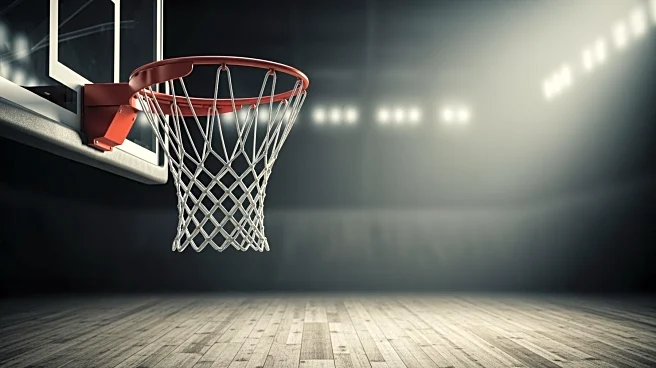What's Happening?
UConn Huskies head coach Geno Auriemma has expressed concerns over the NCAA's name, image, and likeness (NIL) policy, which has significantly altered the landscape of college sports since its adoption
in July 2021. Auriemma highlighted the negative impact on high school basketball players, noting that the November signing period for the 2026 high school class lacks the excitement it once had. The NIL policy allows student-athletes to earn money from their personal brand, leading to a shift in recruitment priorities. Coaches are increasingly focusing on the transfer portal to recruit players who have already proven themselves at the collegiate level, rather than prioritizing high school recruits. Auriemma believes this trend is detrimental to high school athletes, as it diminishes their opportunities and importance in the recruitment process.
Why It's Important?
The shift in recruitment priorities due to the NIL policy has broader implications for college sports and high school athletes. While the policy empowers student-athletes to monetize their brand, it also creates a competitive environment where high school players may struggle to secure college opportunities. This could lead to a decrease in high school athletes pursuing college sports, impacting the future talent pool. Additionally, the focus on the transfer portal may alter team dynamics and the traditional recruitment process, potentially affecting the development of young athletes. Stakeholders in college sports, including coaches and athletic departments, must navigate these changes to balance the benefits of NIL with the need to support high school athletes.
What's Next?
The ongoing debate around the NIL policy and its impact on recruitment may prompt discussions among NCAA officials, coaches, and athletic departments to address the concerns raised by Auriemma and others. Potential changes could include revising recruitment strategies to ensure high school athletes remain a priority, or implementing guidelines to balance the use of the transfer portal with traditional recruitment methods. As the NIL landscape continues to evolve, stakeholders will need to adapt to maintain the integrity and competitiveness of college sports while supporting the development of young athletes.
Beyond the Headlines
The ethical implications of the NIL policy and its impact on high school athletes raise questions about fairness and opportunity in college sports. The focus on monetization and the transfer portal may lead to a commodification of athletes, prioritizing financial gain over athletic development and education. This shift could influence the culture of college sports, emphasizing short-term gains over long-term athlete growth. As the NIL policy continues to shape the industry, stakeholders must consider the ethical dimensions and strive to create a balanced and equitable environment for all athletes.












